

You know about armored trucks, but what about an armored subway? From 1951 to 2006, the New York City transit system ran an armored train that moved all the subway and bus fares collected to a secret room at 370 Jay Street in Brooklyn. This special car was the subject of an exhibit at the New York Transit Museum “The Secret Life of 370 Jay Street” back in 2015. A description in the exhibit stated that “most Money Trains were staffed by 12 collecting agents and one supervisor, all armed and wearing body armor.”
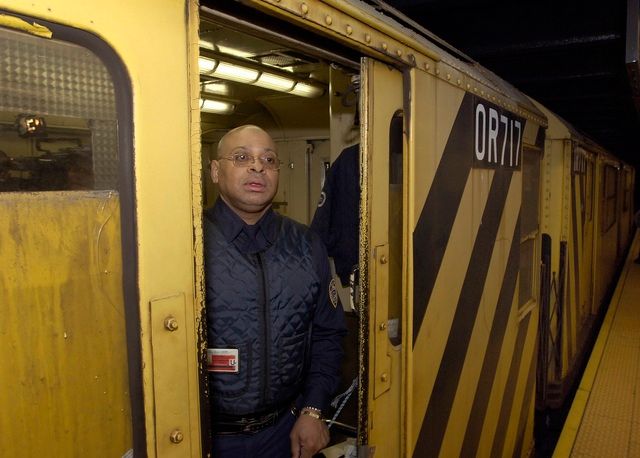
Six nights of the week, multiple money trains would operate at the same time picking up collections from 25 to 40 stations on each run. The two-car train held collecting agents in one car and the revenue in the other. In 1988, 10 sets of R21 and R22 cars were converted into Money Train units.
Collections would then be delivered to the Department of Revenue’s Money Room, which was located inside the 13-story building at 370 Jay Street, designed specifically for safeguarding the processing of the fares. Special security systems, a secret second-floor elevator used to transport money and special tunnels hid behind an ostensibly uniform-looking building. Here is a photo of the gated door where the money would go in from the train at Jay Street:
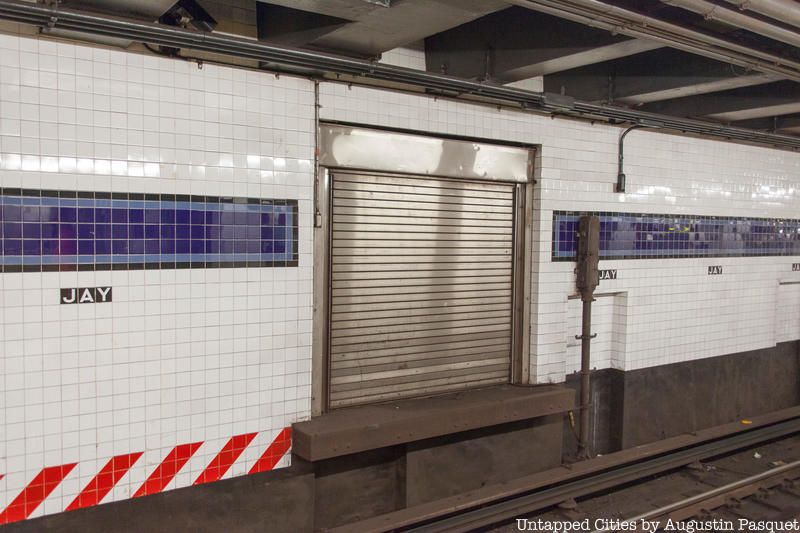
370 Jay Street was also strategically located, and the transit system planners knew that it was located atop a subway station where “tunnels could be built to connect the building to IND, BMT and IRT lines,” read text at the New York Transit Museum exhibit. Prior to the existence of the Money Room, the fares (a ride was 10 cents in 1951) were collected from station booths and transported using armored vehicles. Two years after the opening of 370 Jay Street, the token was introduced.
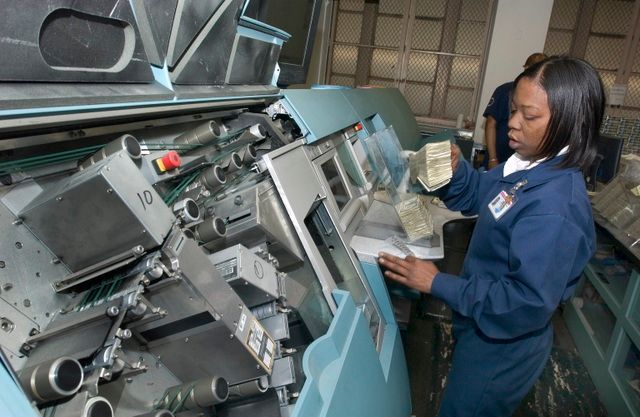
The arrival of the Metrocard necessitated some changes in the revenue collection system, as picking up the fares from the Metrocard machines took longer than picking up a bag from the booth. The armored car system returned and revenue collection was relocated to Maspeth, Queens (also where the DOT sign shop is).
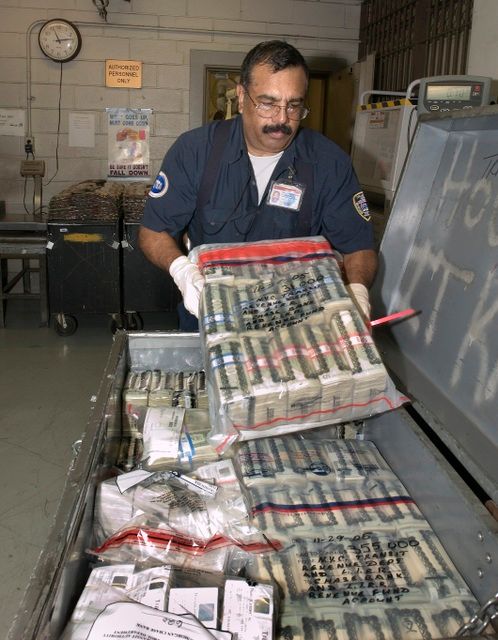
Tokens were completely phased out by 2003 and the final trip of the Money Train took place in January 2006. The Money Room at 370 Jay Street closed the same day. The above photographs are by Patrick Cashin, who documented the process on the last day of operations.
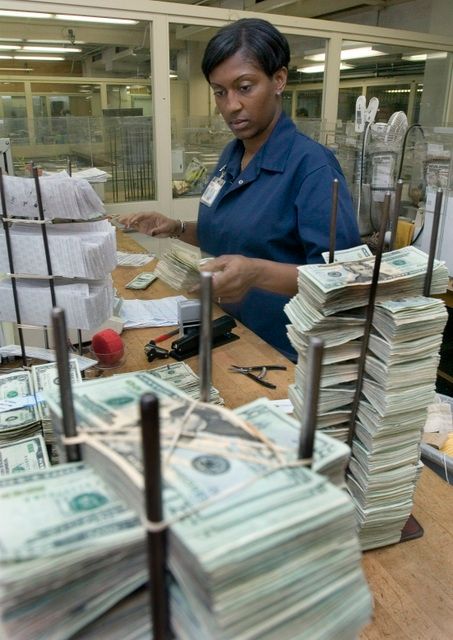
You can see the secret door where money was transferred at Jay Street, and uncover more secrets of the Brooklyn subway system on Untapped New York’s underground tour!
Next, see what the tunnels of 370 Jay Street looked like, discover more of the MTA’s maintenance trains, or read about the secrets of the NYC subway.



